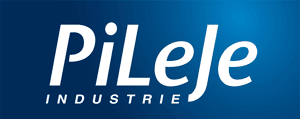The growth of developing new products is increasing in laboratories, bringing its own set of demands. Amongst them, industrial transposition represents a major challenge. To get to know more about this essential step, we met Julie Flori, Head of Transposition.
- Can you tell us about your profile and how long you have been with the company for?
I am an industrial pharmacist specialised (complementary master’s) in developing and producing pharmaceuticals. I joined the company nine years ago, first of all with the Quality Department, then with the Development Department before the Industrial Transposition and Method Department was set up.
- Can you explain to us what industrial transposition is?
Industrial transposition is the link between galenic development and benchtop testing and production with its industrial-sized batches. We are therefore in contact with development teams so that the product designs are oriented towards what we know and have the means to do on an industrial scale, and this right from the feasibility study. Once the product has been developed, we share the issues we met with our development teams and project the tested process on an industrial scale. If we have any doubts about feasibility, we can launch a small scale industrial trial to make sure that any critical points are overcome.
We are responsible for defining production ranges including the steps in the process, time and staff to be allocated. We follow up on the correct implementation of the first industrial batch or batches in order to stabilise the process. We identify any areas for improvement to gain either in quality or in performance.
- At what moment does transposition happen during the manufacturing of a product?
We intervene each time a new product arrives on our machines. We also intervene each time there is a major change in a formula or in packaging, or if a new machine arrives on our production line.
- What are the validation requirements for successful transposition?
There are different validation criteria. Firstly, they are quality criteria:
- Homogeneity of the mixture
- The weight of the capsules, sachets or tablets must be maintained throughout the manufacturing process.
- Compliance of in-process control procedures relating to defined specifications and product release.
All of this is checked using visual, dosage and weight verification… But we also look at performance criteria in terms of time, loss of matter during the process and the relevance of our choice of equipment.
- Which teams work on these projects?
The arrival of a new product is directed by a project manager who liaises with the customer through the sales team and who coordinates the internal development, transposition, supply and planning teams as well as the quality assurance and control teams.
- What are the most difficult transpositions? Are there any particularly sensitive or hard to handle galenics or ingredients?
Each galenic has its own constraints, just as each piece of industrial equipment does too. We have two ingredient categories which are particularly complex: we manage to overcome this complexity thanks to our expertise. These are:
- Probiotics which are live strains and therefore have to be preserved as much as possible at each step of manufacturing without compromising their integrity and therefore their effectiveness.
- Plant extracts, because nature does not produce ‘standards’. Depending on the harvest, weather and seasons, raw materials are not exactly identical and even though we transform this material, it does not eliminate all of the variability of each batch. It is therefore necessary to adapt and thanks to our experience best anticipate any issues we are likely to encounter.
- What has your biggest challenge been for a transposition?
A new product which presented galenic and ingredient challenges as it contained mostly plant extract. This extract had been developed for this product. We were therefore dependent on the characteristics of this predominant extract, but also on what our machines could do. We had to cooperate carefully with the development department to work around the variability. And for this product, there was also a commercial challenge as the volumes forecast were high.
- What guarantees does transposition give your customers?
Transposing their new product from development to production ensures the customer that they get a product in accordance with the defined specifications right from the launch. This compliance will be reproduced from one batch to the next within the deadlines applied by the commercial launch.
- How do you see transposition evolving in the short and medium-term?
Innovative projects to come will represent new challenges where transposition will play an important role in ensuring that innovation is industrialised. The project to refurbish workshops also implies a lot of transposition to ensure that the product/process link remains suitable. The missions of the team in terms of Industrial Methods mean that we work on recurring products to find solutions to improve industrial performance. But also to ensure that the data recorded in the ERP is representative so that the product planning is carried out in accordance with reality.
Are you planning to develop a new product? Feel free to contact us.

